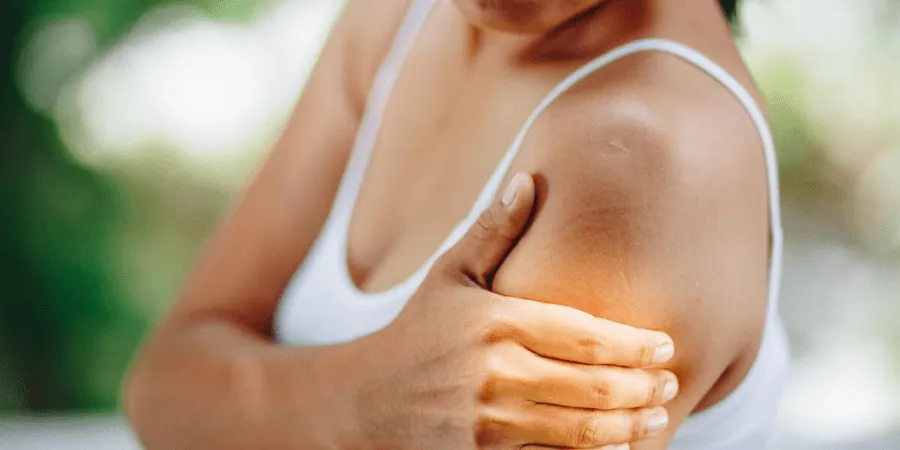
Hives are a very common issue in India, especially in the hot climates of India like West Bengal, U.P. Bihar, etc. Hives are a very well-known problem. The majority of the Indian population knows about it. But don’t panic, it is not a very serious disease; it can be cured through medications and any lifestyle-changing habits.
In summer hives are very common. Hives can happen due to climate, allergies, etc. There are many other reasons for hives. Sometimes the unspecified pressure on the skin can cause hives. For Bengalis hives are like an easy thing, we call it “aambaat” in Bengali. It can be painful or it can be painless, both can be depended on the severity of the hives.
In Kolkata like high-humidity areas, hives are a normal thing. In summer Bengalis suffer from extreme sweating, this extreme sweating leads to hives. Not only that we all know that Bengalis have comparatively weak digestion, you might have heard the terms like: “ambal, buk-jala,” etc. In the scorching summer if you cannot digest the food hives can appear as a result of indigestion. Hives are basically like a swollen part of the skin, which may be red or pink at the top. The area around the hives will become pink gradually.
My cousin’s sister lives in Canada. She was born and brought up in Canada also. When she fast came to India in the summer, she was shocked to see the situation of climate. For her, the whole climate is filled with intolerable heat and humidity. She could not bear the heat. Not only heat, she actually could not digest the rich and well-cooked food.
She was so much into Canadian bland food, so for her, Indian food tastes delicious, but it was also actually very difficult for her to digest in the climate of India. So, she became irritated here. After lunch, we all had mango, though she likes mango a lot that day she did not take it.
That day in the evening she was in her room, so I went to call her and noticed that she had hives on her face, legs, and hands. At first, she was afraid; she thought that it was some kind of skin disease, and cried for help, but I consoled her by saying that she just only had some hives. I took her to a local doctor who is a specialist in hives; he also told her the same. After getting the consultation with the doctor, she was calm and cool.
What do you learn from the story?
All the hives are not as dangerous as chronicle hives.
So, don’t panic in any case. Just be calm and cool take a consultation with a doctor and apply medications as well as change some habits.
I think most of you know what hives are, and in case you can’t understand now, let me allow for a better explanation.
So, let’s briefly talk about hives.
What is Hives?
Hives are basically itchy welts that form in the skin. Its color is pink and the area surrounding it becomes red or pink. It is either painful or painless. Usually, it disappears automatically, but if you have chronicled hives, then it will take time and patience.
It is absolutely curable. Don’t be panicked about it. If you do panic over it, it can cause other problems.
I think those of you guys understand what hives are. So remember my words and don’t panic.
Now, we will come to our second segment, which is quite predictable. Is hive cause of all? Or, who is in the high-risk zone for hives? If you also have the same questions, then I must we have matching vibes! Jokes apart.
Let’s move on to our next segment:
Who Can Be Affected by Hives Easily?
The answer is very simple if you have an allergy, then you must be very careful about hives. Or if you have a heat or dust allergy then you have to be careful because hives are going to attack you anytime soon. If you know that you are allergic to sudden food items or pollen, then you try to avoid those things, because if you eat your allergy-stimulating foods, your digestive system cannot digest them properly, so as a result after some time you will have hives as a reaction that body produces.
I think you understand what I want to say. Above, I mention the definition (not the clinical definition though) and the high-risk group, now we will go to our last segment which is:
Medications and Lifestyle-Changing Tips to Prevent Hives:
Already I have told you that hives are not that much worse. It is totally curable. But you have to be careful and consult a doctor.
1. Use of Best Medicines: Medication for hives is available. So, after consulting a doctor try to apply the best medicines to your hives. I will provide you with the list at this point. The list of medicines:
- Doxepin (Silenor, Zonalon)
- Omalizumab (Xolair)
- Famotidine (Pepcid AC)
- Montelukast (Singulair)
- Cimetidine (Tagamet HB)
- Nizatidine (Axid AR)
- Ranitidine (Zantac)
These are some medicines that you can use if you have hives.
Let’s go to the next point.
2. Avoid Allergy-Rich Foods: If you have the problem of allergy then I will suggest you not to eat the allergen food. These foods can trigger your allergy and allergy also leads to hives so, be careful.
3. Take a Cold Bath: If you are disturbed by hives, try to take a bath in cool water, this can help you with your hives problem.
4. Save Your Skin: Try to save your skin from dust and sun, because they also cause hives.
5. Wear Loose Clothes: Try to wear loose and comfortable clothes instead of tight clothes. This will also help you if you have a problem with hives.
